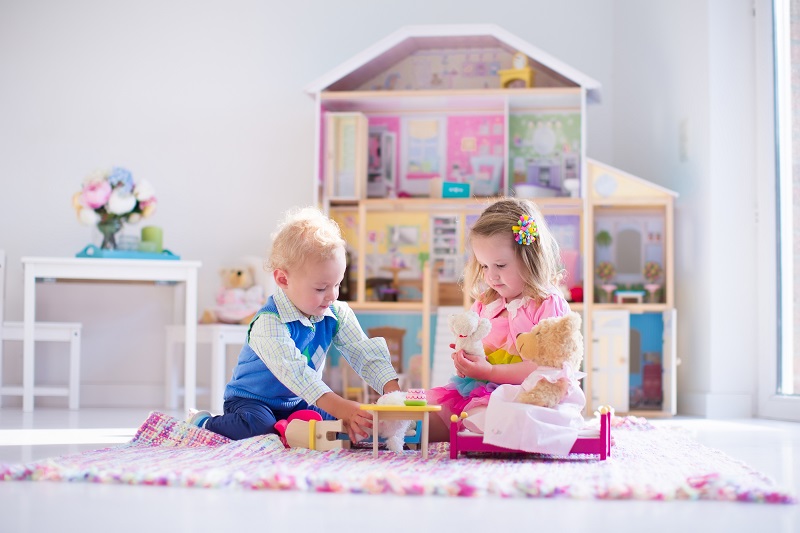As a parent, it’s your job to solve your children’s little squabbles. These innocent wars often help your children learn how to solve their first conflicts, but when does it become too much? What to do when children constantly fight over toys? Should you even do anything?
Toy wars usually start when one child takes a toy their friend is playing with. If the children can’t solve the problem on their own, you should gently intervene. Try to explain to the children that they should always politely ask their friend for the toy before taking it. It’s important for children to learn how to share, even at such a young age.

That’s my toy!
The longer your child is alone without a sibling, the harder it will be for them to learn how to share. Of course, toy wars aren’t exclusive to siblings, they usually happen a lot in kindergarten, too. Some children can handle these conflicts on their own without their parents stepping in, but others might need a bit of help.
Children who are more active and more dominant will take the ‘stolen’ toy back. On the other hand, children who are quiet and shy will just accept defeat and find another toy to play with. Children who are close together in age can often settle these disputes on their own. There may be a little yelling, but they’ll usually manage.
Try to explain to your children that they can play with the toy for a while and then give it to their sibling or friend. There are also many toys that can entertain more children at the same time. Children will slowly figure out that their toys will always return to them and that they can also borrow toys from their friends.
Talk and explain
Talk with your partner first and agree on the way you’ll communicate with your children and solve their toy wars. Don’t promise your children treats as a reward for sharing. Children need to understand that sharing with their siblings or friends is normal and that they should do it without expecting a reward. Try to use examples from your own life. Explain that you also let your neighbors borrow tools or other things if you’re not using them and that you always agree when the neighbor should return them.

Don’t physically punish your children. It could have a negative effect on their development and it could also lead to an estranged parent-child relationship later down the line. You should talk with your children and teach them from an early age that toys are there for everyone and that sharing is a great way to be nice.
Become an example
Children copy what they see at home and around them. That’s why you should always be an example. Of course, you and your partner don’t argue about toys, but there are other things you can do. For example, if your partner has the remote control, you can politely ask them if you can take it and change the channel. If your partner is reading a magazine, you can ask: “When you’re done reading the magazine, could I please borrow it?”
Don’t tell your older child that they don’t need those toys because they don’t play with them anymore. Children don’t really understand what this means and they don’t know why they should give up their toy because they’re not playing with it. If it’s ‘my toy’, it will be ‘my toy’ forever, right? In these cases, try to suggest that your older child lends their toy to their sibling when they’re playing with another toy.

Our children take in almost everything that’s going on in the household and the parents are their very first role models. Play with your children and teach them that sharing toys is a normal thing to do and that they shouldn’t fight because of toys. The more you tell your children that they can’t do something, the more they’ll want to do it. Especially when they’re in their rebellious stage, words such as “no”, “don’t” and “you can’t” will make a child do the exact opposite. This is why it’s necessary to explain everything and be patient about it.
There’s no key to victory when it comes to child wars. The only thing that’s certain is that punishment isn’t a long-term solution. The best thing we can do is communicate with our children and be good role models.